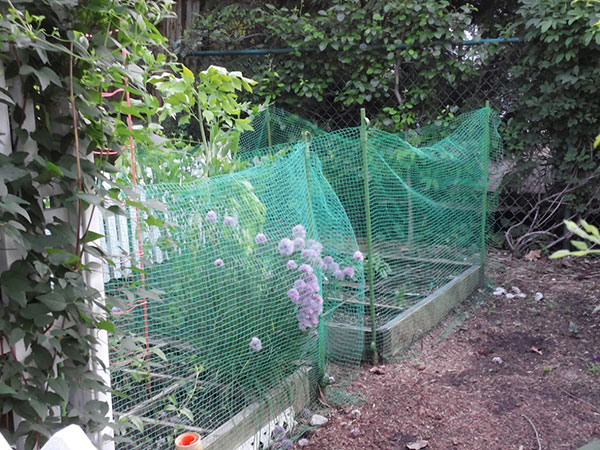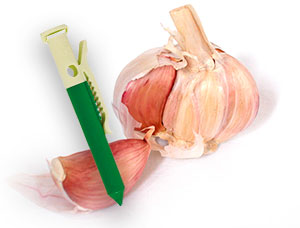Tomato Talk
A Full Season of Tomato-Growing Information
Critter control: Squirrels, chipmunks, and rabbits
In August, tomatoes become the stars of the vegetable garden. With sunny and warm weather, tomatoes planted in June should begin bearing buckets of juicy orbs. But critters, from birds to deer to a curious chipmunk, can put a dent in the harvest.

Bird netting helps protect tomato plants in the garden.
Barriers, such as fencing, prevent animals from getting the goods. Chickenwire or plastic mesh fencing or lightweight bird netting (available at garden centers) can be installed around a pot or a row of plants. If rabbits are the bane of your garden, you’ll also want to bury the netting a few inches below the soil to prevent them from digging underneath.
Garlic is a Gardener's Best Friend
Deer and rodents are not fans of the allium family (garlic, onion), so one of the most effective methods of keeping them from eating your tomatoes (or peas, or roses, or anything else in your garden) involves making your plants smell unattractive.

Garlic cloves with a deer-repellent garlic clip
Crush a clove of garlic and put the crushed clove in spray bottle full of water. Let it stand overnight, then spray the solution on the leaves of your plants. Repeat once weekly. Looking for a stronger solution? Buy garlic oil concentrate at your local garden center to add to your water.
Put a few crushed cloves of garlic in a small strip of old pantyhose, and tie to your tomato cages, or tie loosely to your tomato plants. (Many people also recommend this method with slices of a very fragrant soap, but we prefer the all-organic garlic method.)
Buy garlic oil repellent clips from your local hardware store or garden center. These clips will last all season long (six to eight months), and work in a variety of applications. You can put them in chipmunk or vole tunnels, attach to fruit trees or berry bushes to deter deer browsing, or put at the base of your fencing to deter rabbits from digging underneath.

